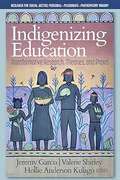Résultats de recherche de titre
Articles 1 à 3 sur 3

A Just and Generous Nation: Abraham Lincoln and the Fight for American Opportunity
Par Harold Holzer, Norton Garfinkle. 2015
DAISY texte (Téléchargement direct), DAISY texte (Zip), Word (Zip), ePub (Zip)
Politique et gouvernement (biographies), Affaires et économie, Etats-Unis (histoire), Essais et documents généraux
Audio avec voix de synthèse
In A Just and Generous Nation, the eminent historian Harold Holzer and the noted economist Norton Garfinkle present a groundbreaking…
new account of the beliefs that inspired our sixteenth president to go to war when the Southern states seceded from the Union. Rather than a commitment to eradicating slavery or a defense of the Union, they argue, Lincoln’s guiding principle was the defense of equal economic opportunity. Lincoln firmly believed that the government’s primary role was to ensure that all Americans had the opportunity to better their station in life. As president, he worked tirelessly to enshrine this ideal within the federal government. He funded railroads and canals, supported education, and, most importantly, issued the Emancipation Proclamation, which opened the door for former slaves to join white Americans in striving for self-improvement. In our own age of unprecedented inequality, A Just and Generous Nation reestablishes Lincoln’s legacy as the protector not just of personal freedom but of the American dream itself.
Washington: A History of Our National City
Par Tom Lewis. 2015
DAISY texte (Téléchargement direct), DAISY texte (Zip), Word (Zip), ePub (Zip)
Etats-Unis (histoire), Politique et gouvernement, Essais et documents généraux
Audio avec voix de synthèse
On January 24, 1791, President George Washington chose the site for the young nation’s capital: ten miles square, it stretched…
from the highest point of navigation on the Potomac River, and encompassed the ports of Georgetown and Alexandria. From the moment the federal government moved to the District of Columbia in December 1800, Washington has been central to American identity and life. Shaped by politics and intrigue, poverty and largess, contradictions and compromises, Washington has been, from its beginnings, the stage on which our national dramas have played out. In Washington, the historian Tom Lewis paints a sweeping portrait of the capital city whose internal conflicts and promise have mirrored those of America writ large. Breathing life into the men and women who struggled to help the city realize its full potential, he introduces us to the mercurial French artist who created an ornate plan for the city “en grande”; members of the nearly forgotten anti-Catholic political party who halted construction of the Washington monument for a quarter century; and the cadre of congressmen who maintained segregation and blocked the city’s progress for decades. In the twentieth century Washington’s Mall and streets would witness a Ku Klux Klan march, the violent end to the encampment of World War I “Bonus Army” veterans, the 1963 March on Washington for Jobs and Freedom, and the painful rebuilding of the city in the wake of Martin Luther King, Jr. ’s assassination. “It is our national center,” Frederick Douglass once said of Washington, DC; “it belongs to us, and whether it is mean or majestic, whether arrayed in glory or covered in shame, we cannot but share its character and its destiny. ” Interweaving the story of the city’s physical transformation with a nuanced account of its political, economic, and social evolution, Lewis tells the powerful history of Washington, DC—the site of our nation’s highest ideals and some of our deepest failures.
Indigenizing Education: Transformative Research, Theories, And Praxis
Par Jeremy Garcia, Valerie Shirley, Hollie Anderson Kulago. 2022
DAISY texte (Téléchargement direct), DAISY texte (Zip), Word (Zip), ePub (Zip)
Etats-Unis (histoire)
Audio avec voix de synthèse, Braille automatisé
Indigenizing Education: Transformative Research, Theories, and Praxis brings various scholars, educators, and community voices together in ways that reimagines and…
recenters learning processes that embody Indigenous education rooted in critical Indigenous theories and pedagogies. The contributing scholar-educators speak to the resilience and strength embedded in Indigenous knowledges and highlight the intersection between research, theories, and praxis in Indigenous education. Each of the contributors share ways they engaged in transformative praxis by activating a critical Indigenous consciousness with diverse Indigenous youth, educators, families, and community members. The authors provide pathways to reconceptualize and sustain goals to activate agency, social change, and advocacy with and for Indigenous peoples as they enact sovereignty, selfeducation, and Native nation-building. The chapters are organized across four sections, entitled Indigenizing Curriculum and Pedagogy, Revitalizing and Sustaining Indigenous Languages, Engaging Families and Communities in Indigenous Education, and Indigenizing Teaching and Teacher Education. Across the chapters, you will observe dialogues between the scholar-educators as they enacted various theories, shared stories, indigenized various curriculum and teaching practices, and reflected on the process of engaging in critical dialogues that generates a (re)new(ed) spirit of hope and commitment to intellectual and spiritual sovereignty. The book makes significant contributions to the fields of critical Indigenous studies, critical and culturally sustaining pedagogy, and decolonization.